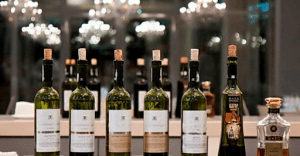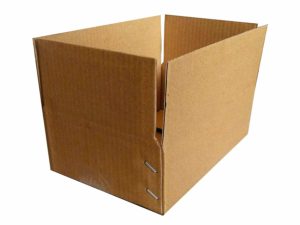
Minister of Economy Ihor Petrashko expects to find such a version of the bill on amendments to the law on public procurement, which will satisfy international partners and will support the Ukrainian manufacturer.
“Without stimulating production in Ukraine and using public funds to purchase goods produced in Ukraine, there will be no significant progress in the country,” Petrashko told a news conference during the Ukrainian Forum “Ukraine 30. Coronavirus: Challenges and Responses” held on Tuesday.
According to the minister, all countries of the European Union and the United States use incentives to ensure that public funds primarily go to the purchase of those goods that are produced in their countries.
Petrashko said that at the moment consultations with the EU and the United States on the local content bill (No. 3739 on amendments to the law of Ukraine on public procurement) are underway, as the reaction to it is ambiguous.
The minister added that the use of non-price criteria will benefit Ukraine’s trade with the European Union and the United States.
“Therefore, we want to find a format of persuasion and find the version [of the bill] that will allow us to support the manufacturer,” Petrashko said.

Shabo, a large Ukrainian wine manufacturer (Odesa region) on July 28 opened its third brand store in China, Fuzhou, the previous two working in Guangzhou and Xi’an.
According to the company’s website, the official store opened at the end of the previous month became the largest of the three stores. Shabo has been exporting its products to China since 2013. The first brand store was opened here two years ago.
“This is the third Shabo store with the products represented in China under the Master Tardan trademark, the previous two are successfully operating in Guangzhou and Xi’an,” the company said.
The new store in China has 240 square meters of stands with products, a wine storage, a tasting room, and office premises.
“This is the third store we’ve opened in three years and we plan to move forward at the same pace. I believe that by 2021 the Shabo brand store will open its doors to Shanghai residents as well,” Stanyslav Kobyletsky, the company’s export director, said.
The company noted that Shabo products are now exported to 18 countries of the world.
Shabo was established in 2003. The company is engaged in growing and processing grapes, production, and sales of alcohol products.
The company has been producing cognacs and brandy since 2005, and Shabo grape vodka since 2013. The manufacturing capacity of the complex, occupying more than 10,000 square meters, provides a full cycle of production of strong alcoholic drinks of grape origin.
The range of Shabo products is presented in all regions of Ukraine, as well as in Georgia, Israel, China, Poland, Latvia, Estonia, Belgium, France, Denmark, the Czech Republic, the United States, Brazil, Canada, Azerbaijan, Japan, Norway, and the United Kingdom.
The company owns processing capacities for the season amounting to more than 20,000 tonnes of red and white grapes. The Shabo vineyard covers a total area of about 10,000 square meters. Shabo produces 50 million bottles a year, with a total of about 80 items of products. Bottling is performed at nine filling lines.
Based on the state register of legal entities and individual entrepreneurs, the ultimate beneficiary of Shabo Industrial-Trade Company LLC is Eldar Iukuridze, Agrofirma Shabo LLC (both in Odesa region, the village of Shabo) Eldar Iukuridze and Bela Cholikidze.

Kormotech LLC (Lviv region), a large Ukrainian manufacturer of cat and dog feed, has made the first shipments of cat feed under a private label to the UK and Finland.
According to the press service of the company, 19 tonnes of dry cat feed were delivered to the UK and 5,000 tonnes to Finland. The company plans to supply wet feed to Britain, which makes up 75% of the feed market in this country, and export products under its own trademark to these countries after obtaining the necessary certification.
“Northern Europe has a very developed market, and the largest share in this market belongs to super premium feeds. The UK is among the ten most powerful pet food markets in the world. Our goal is to enter the top 50 industry leaders in the world by 2023. Now our product exports account for about 15%, and we need to triple this figure to achieve our goal,” Ihor Paraniak, the production director of Kormotech, said.
The company planned in 2019 to make the first private label shipments to the UK and Finland, as well as to enter U.S. retail chains (now products are sold through Amazon in this country).
Kormotech exports products to over 20 countries, including France, Estonia, the Netherlands, Slovenia, and Poland.

Grigeo, one of the leading cardboard and wood board manufacturers in the Baltic states, which owns the Ukrainian corrugated packaging manufacturer PJSC Mena Paсk (Mena, Chernihiv region), has attracted EUR30 million of investments from INVL Baltic Sea Growth Fund to develop cardboard business, according to a press release from Grigeo.
The corresponding agreement was signed on June 10 by Grigeo AB, which controls the cardboard business of the group, and BSGF Salvus, a subsidiary of INVL Baltic, and provides for phased investments of up to EUR30 million in Grigeo investicijų valdymas (a 100% subsidiary of Grigeo AB) with the acquisition of 49.99% of its shares. The transaction must be completed after the fulfillment of the contractual conditions, subject to approval by the Competition Council.
In addition to Ukraine’s Mena Pack, Grigeo Group includes enterprises in Lithuania and Latvia, namely Grigeo Klaipeda (owns 100% of Mena Pack) and Grigeo Recycling. According to the group’s plans, taking into account the growth in demand for cardboard and products from it, it intends to triple the production capacity in five years.
Mena Pack, which has been operating in the corrugated packaging market for over 30 years, produces corrugated packaging made of three-layer corrugated cardboard for tobacco, food and construction industries.

Grigeo Klaipeda (Lithuania), which owns the major stake (more than 97.92%) in PJSC Mena Pack (Mena, Chernihiv region), a manufacturer of corrugated boxes, intends to use the right of squeeze-out.
According to a report by Mena Pack in the information disclosure system of the National Commission on Securities and Stock Market, it received the corresponding notification on November 27.
Grigeo Klaipeda has been holding the major stake in the company since 2012. The charter capital of the company is UAH 4.01 million, the nominal value of shares is UAH 5.
Mena Pack, which has been operating in the corrugated packaging market for more than 30 years, produces corrugated packaging made of three-layer corrugated cardboard for tobacco, food and construction industries.
Grigeo Klaipeda is part of Grigeo Group, the only manufacturer of chipboard, cardboard and sanitary paper in Lithuania and one of the largest in the Baltic States. Grigeo Klaipeda produces components for corrugated cardboard.
BUY, CORRUGATED BOXES, GRIGEO KLAIPEDA, MANUFACTURER, SHARES

Private joint-stock company AvtoKrAZ (Kremenchuk, Poltava region), the sole Ukrainian manufacturer of heavy trucks, plans to boost production and sales of trucks to 1,200 units in 2018, while in 2017 the enterprise made 629 trucks and sold 677 units, according to a financial report of the enterprise for 2017. According to the document, it is planned to increase production and sales of vehicles thanks to retaining positions in the domestic market and increasing export orders.
The main sales market will remain internal, where it is planned to supply about 800 trucks, or 66% in the sales volume. The share of supplies for export is expected to increase to 34% compared with 19% in 2017. In supplies to the Ukrainian market for the current year, it is expected that 41% will be orders for state-owned structures, and supplies for municipal companies are planned to quadruple.
According to the report, in 2018, AvtoKrAZ intends to continue work on the adaptation of power units to the Euro 6 emission standard and the creation of promising truck models. At the same time, the main attention will be paid to expanding the lines of special equipment for the Armed Forces and compact trucks for public utilities companies. The main rivals of AvtoKrAZ are the trucks of manufacturers from the CIS (MAZ, KamAZ, UralAZ), which are in the same strategic group with KrAZ in terms of the price/quality ratio.
In addition, among the rivals in the markets of Asia and Africa are trucks of Chinese, South Korean and Indian manufacturers.
At the same time, according to the document, such Western manufacturers as Daimler AG (Mercedes, Freightliner, Mitsubishi, Western Star), Scania, Iveco, MAN, DAF, as well as American, Japanese and South Korean companies, which main markets were Western Europe, Japan and North America, in recent years, due to a sharp drop in demand in these markets, are forced to look for new markets in Southeast Asia, Eastern Europe, CIS countries and Africa, that is, where the positions of AvtoKrAZ are traditionally strong.
According to the company, in 2017, out of the 629 trucks produced, 43% of the trucks were dropside trucks, 35% – automobile chassis, 19% – tractor trucks, and 3% – dump trucks.
The main consumers of equipment in Ukraine in 2017 were power structures, oil and gas and municipal sectors. Abroad, the main importing countries are Georgia and Kazakhstan, Turkmenistan, African countries (Nigeria, Egypt, Mali and Ethiopia) and the Middle East (the UAE, Iran). At the same time, the volume of supplies to Ukrainian customers was increased by 50% compared with 2016.
At the same time, the company recalled that until 2013 the main sales market was Russia, where more than 50% of sales were made, and in 2013-2015, this share was reduced to 10%.
Revenue from sales of trucks in 2017 totaled UAH 945 million (90% of total revenue). Spare parts for UAH 64 million were sold (6%), casting products for UAH 23 million (2%) and other products and services for UAH 16 million. AvtoKrAZ adjusted net loss seen in 2017: it was UAH 89.73 million (according to the preliminary data it was UAH 235.6 million), which is 52.4% less than in 2016. Net revenue totaled UAH 1.048 billion (15% down).